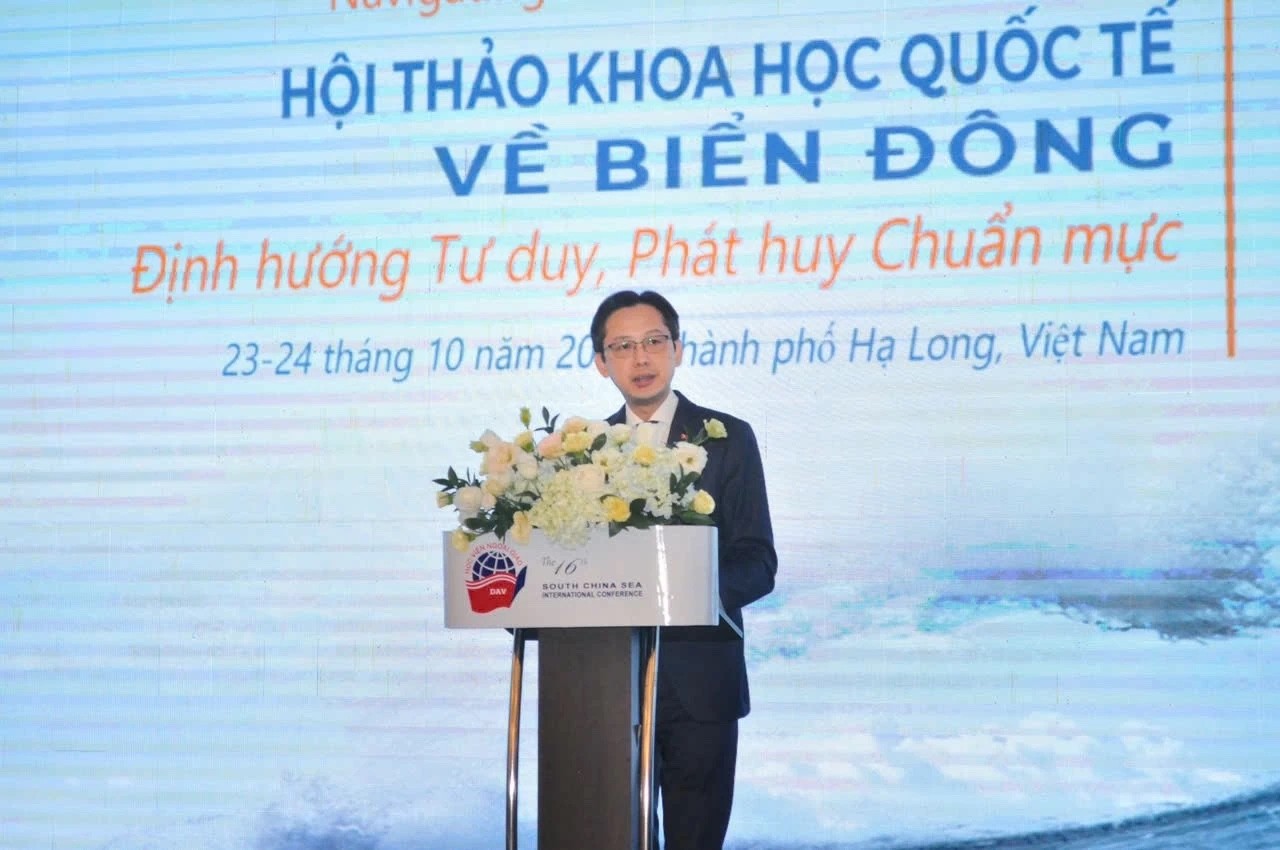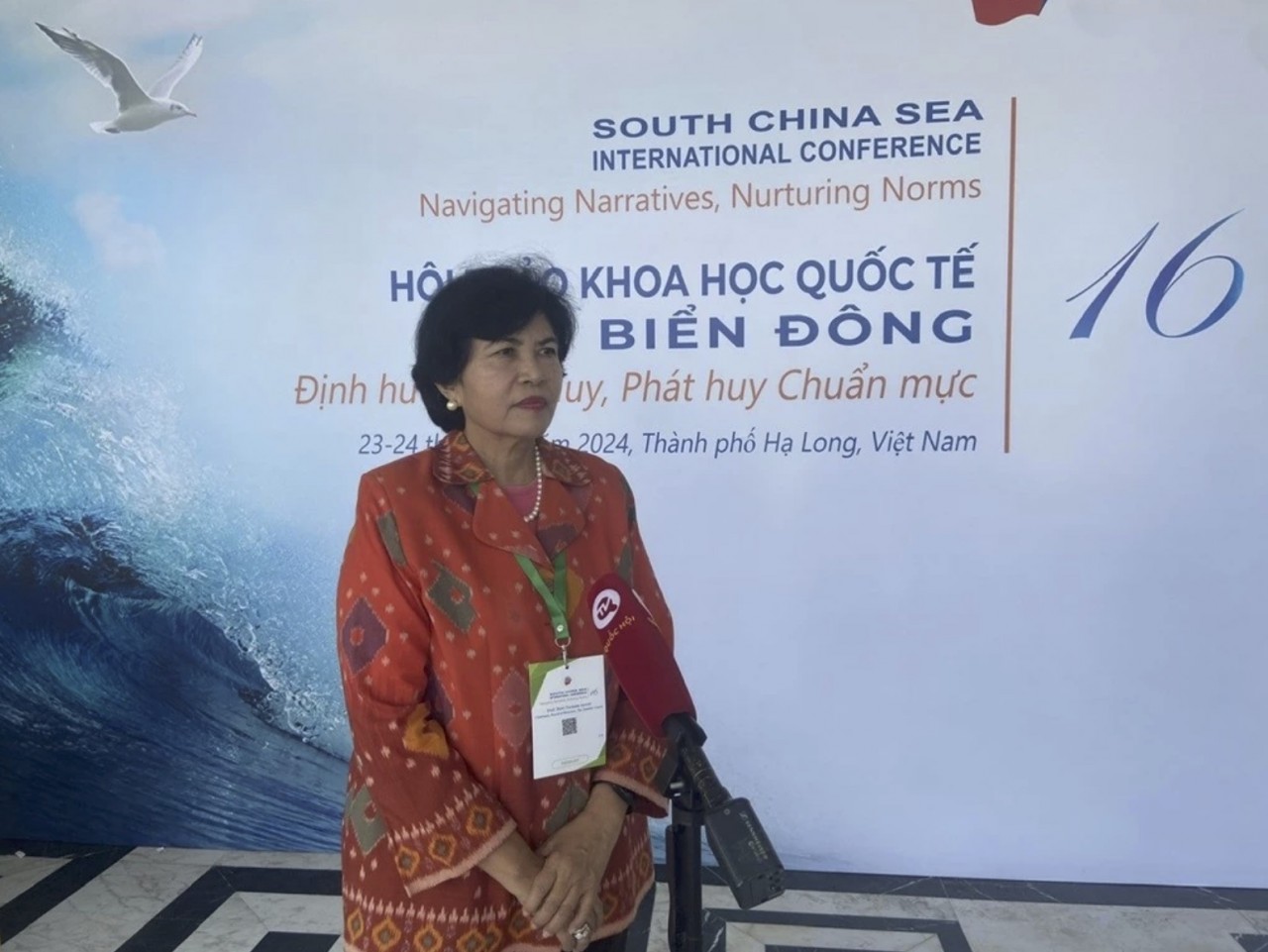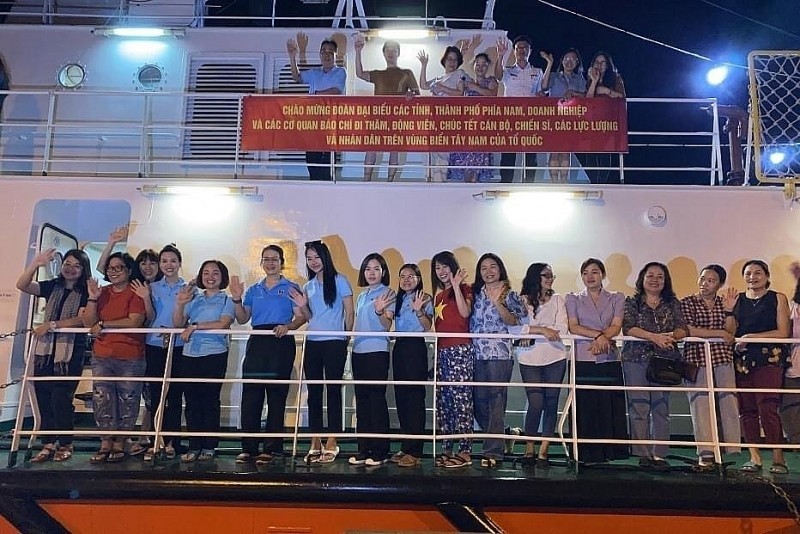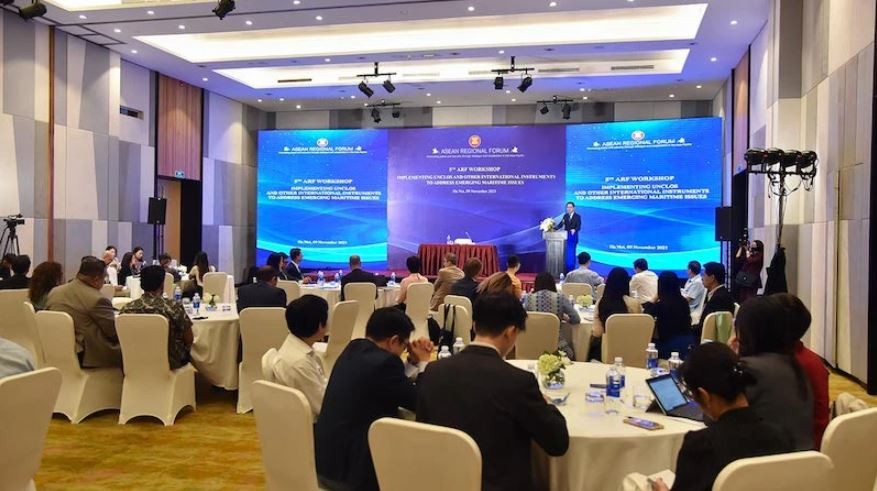International Community Appreciates Vietnam's Consistent Stance on South China Sea
Over the year, Vietnam has kept its consistent view on the South China Sea issue, which is maintaining peace, stability, ensuring security, safety, and freedom of navigation and overflight, protecting legitimate rights and interests, settling disagreements by peaceful means, and through dialogue, on the basis of respect for international law, especially the 1982 United Nations Convention on the Law of the Sea (UNCLOS).
"Vietnam has a full historical basis and legal grounds over the two islands as determined by the 1982 UNCLOS," Le Thi Thu Hang, spokesperson of Vietnam's Ministry of Foreign Affairs has repeatedly said in many press conferences. "Vietnam calls on all countries to contribute to the maintenance of peace, stability, and cooperation in the South China Sea, continue to adhere to international laws in goodwill including the UNCLOS 1982, and strictly comply with the Declaration on the Conduct of Parties in the South China Sea between ASEAN and China (DOC) – in particular exercising restraint and avoiding escalating of tensions, creating an environment conducive to the negotiations of an effective and substantive Code of Conduct (COC), thus contributing to building trust, maintaining trust and stability, promoting the international order at sea and ensuring security, safety, and maritime freedom in the South China Sea."
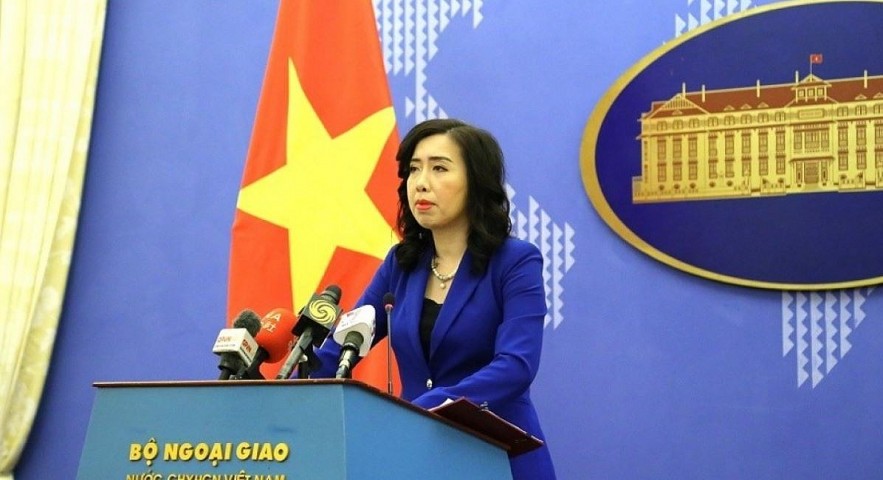 |
| Le Thi Thu Hang, spokesperson of Vietnam's Ministry of Foreign Affairs (Photo: TG&VN) |
In high-level meetings, officials from many countries have expressed agreement with Vietnam's position on this issue.
During their visits to Vietnam and discussions with Vietnamese leaders, foreign politicians such as Japanese Prime Minister Kishida Fumio, and Speaker of Singapore's Parliament Tan Chuan-Jin, all emphasized the importance of ensuring security, safety, and freedom of navigation and overflight in the South China Sea area. They also stressed the importance of settling disputes by peaceful means, including full respect for diplomatic and legal processes, avoiding the use or threatening to use force, on the basis of international law, particularly UNCLOS 1982. They called on countries to fully, comprehensively, and effectively implement the DOC, and soon finalize the COC.
Vietnam's viewpoint was clearly confirmed when Prime Minister Pham Minh Chinh received US Secretary of State Antony Blinken on his attendance at the ASEAN-US Special Summit and his visit to the US and the United Nations last May.
Many countries have also expressed their opposition to unilateral actions that complicate the situation and threaten peace, stability, safety, and security in the South China Sea, such as China's militarization in the South China Sea and the Spratly Islands or issuing fishing bans from May 1 in the South China Sea, including Vietnam's waters.
During talks between Japanese Prime Minister Kishida Fumio and US President Joe Biden in May, or during a discussion between German Chancellor Olaf Scholz and Japanese Prime Minister Kishida Fumio in April in Tokyo, the leaders consented to oppose unilateral efforts to change the status quo in the South China Sea by force.
In January 2022, the Bureau of Oceans and International Environmental and Scientific Affairs under the US Department of State released a research paper that countered China's "illegal claims" in the South China Sea. The 47-page document states that China's claims have no legal basis according to international law, and asserts that these claims seriously violate many provisions recognized by the 1982 UNCLOS.
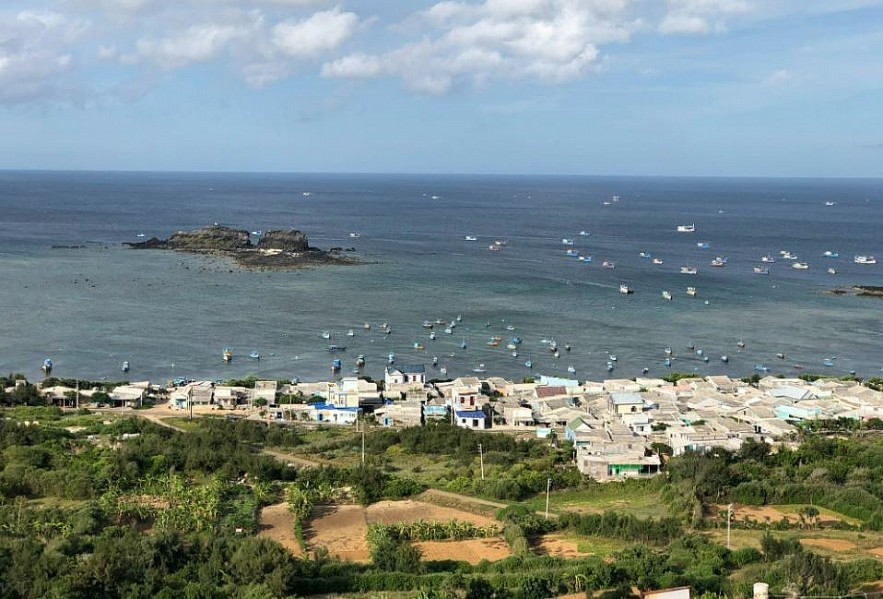 |
| A corner of Phu Quoc (Photo: Dan Viet) |
On April 29, shortly after Beijing issued the three-month ban starting on May 1 that covers part of Vietnam’s Hoang Sa (Paracel Islands) and the Gulf of Tonkin, spokesperson Le Thi Thu Hang of the Vietnamese Ministry of Foreign Affairs said:
“Part of the fishing ban violates Vietnam’s sovereignty over Hoang Sa, its sovereign rights and jurisdiction that are provided by the 1982 United Nations Convention on the Law of the Sea (UNCLOS) 1982 and the Agreement on Delimitation of the Tonkin Gulf signed in 2000.”
She said Vietnam’s stance on China’s fishing ban remains consistent over the past years. Vietnam has kept slamming the ban, saying China must respect Vietnam’s sovereignty over the banned areas.
On May 31, the Philippines sent a diplomatic note to protest China's unilateral imposition of a fishing ban in the South China Sea, including the waters in the exclusive economic zones (EEZ) of the Philippines and Vietnam.
On June 2, the US Department of State said China's unilateral fishing ban in the South China Sea was inconsistent with The Permanent Court of Arbitration's 2016 arbitration ruling and international law.
In a recent article on Infox.ru (Russia) titled: "Vietnam - the flagship of ASEAN," Grigory Trofimchuk, an expert on foreign policy, defense, and security, wrote: "Vietnam's consistent and constructive stance on establishing a peaceful and stable environment in the region, including in the South China Sea, is an important factor to help Hanoi adapt to the modern geopolitical situation."
He highly valued Vietnam's role in the process of finding consensus with China on the South China Sea-related issues, especially through the direction of the Communist Parties of the two countries to create specific results.
 | International Cooperation Should be Enhanced to Benefit Vietnam's Sea and Island Policy In both short and long term, Vietnam should be more proactive in expanding and strengthening maritime cooperation, striving to become a rich and strong country ... |
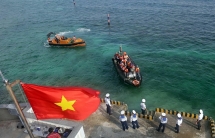 | Parties in the South China Sea Need to Show Goodwill and Cooperative Spirit The Permanent Court of Arbitration in 2016 is the legal basis to assert that China's "nine-dash line" claim is flawed and contrary to the 1982 ... |
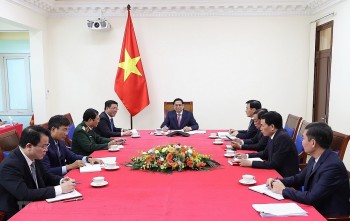 | Vietnam, China Aim to Advance Bilateral Ties Vietnam and China are working to bring their relations to a new development period with higher political trust and more effective and practical cooperation. |
Recommended
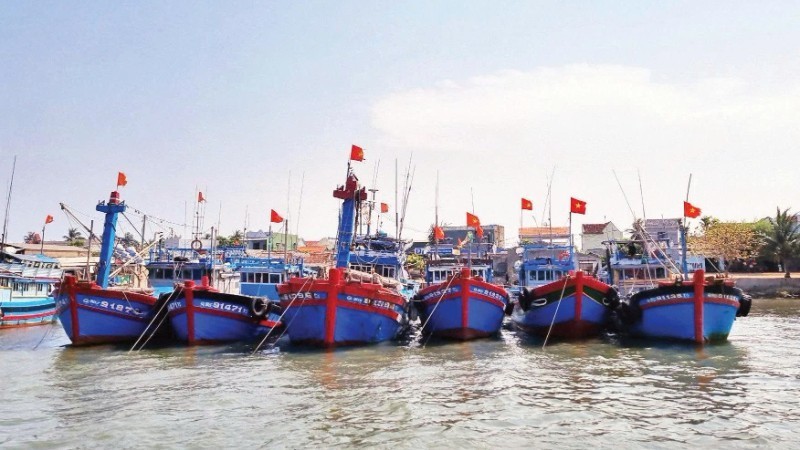 Seas and islands
Seas and islands
Quang Tri Advances Sustainable Fisheries Through Fishing Vessel Conversion Plan
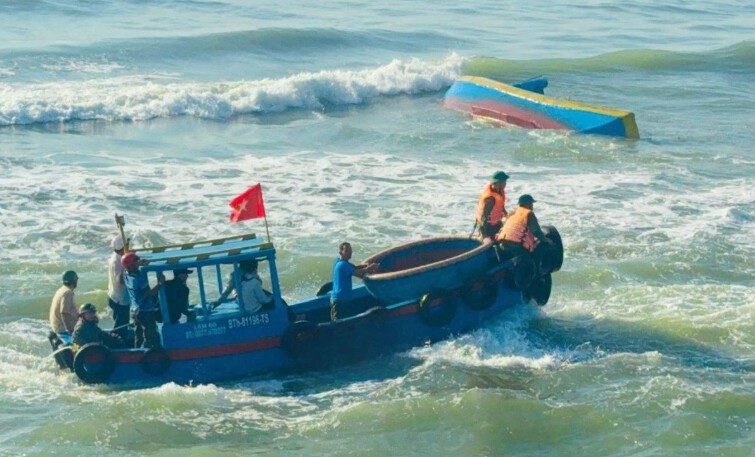 Seas and islands
Seas and islands
Fishing Vessel Sinks by Waves at La Gi Port; All 15 Crew Members Rescued Safely
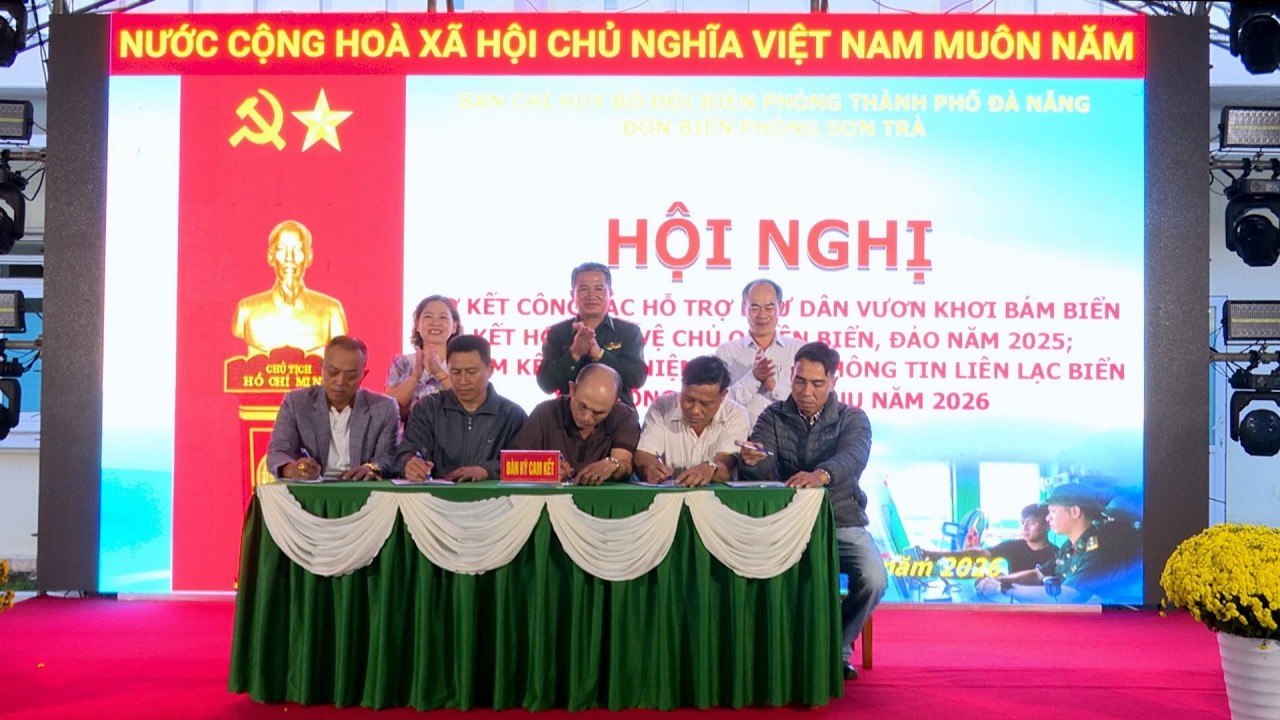 Seas and islands
Seas and islands
Nearly 500 Da Nang Fishing Vessels Sign Pledge Against IUU Fishing
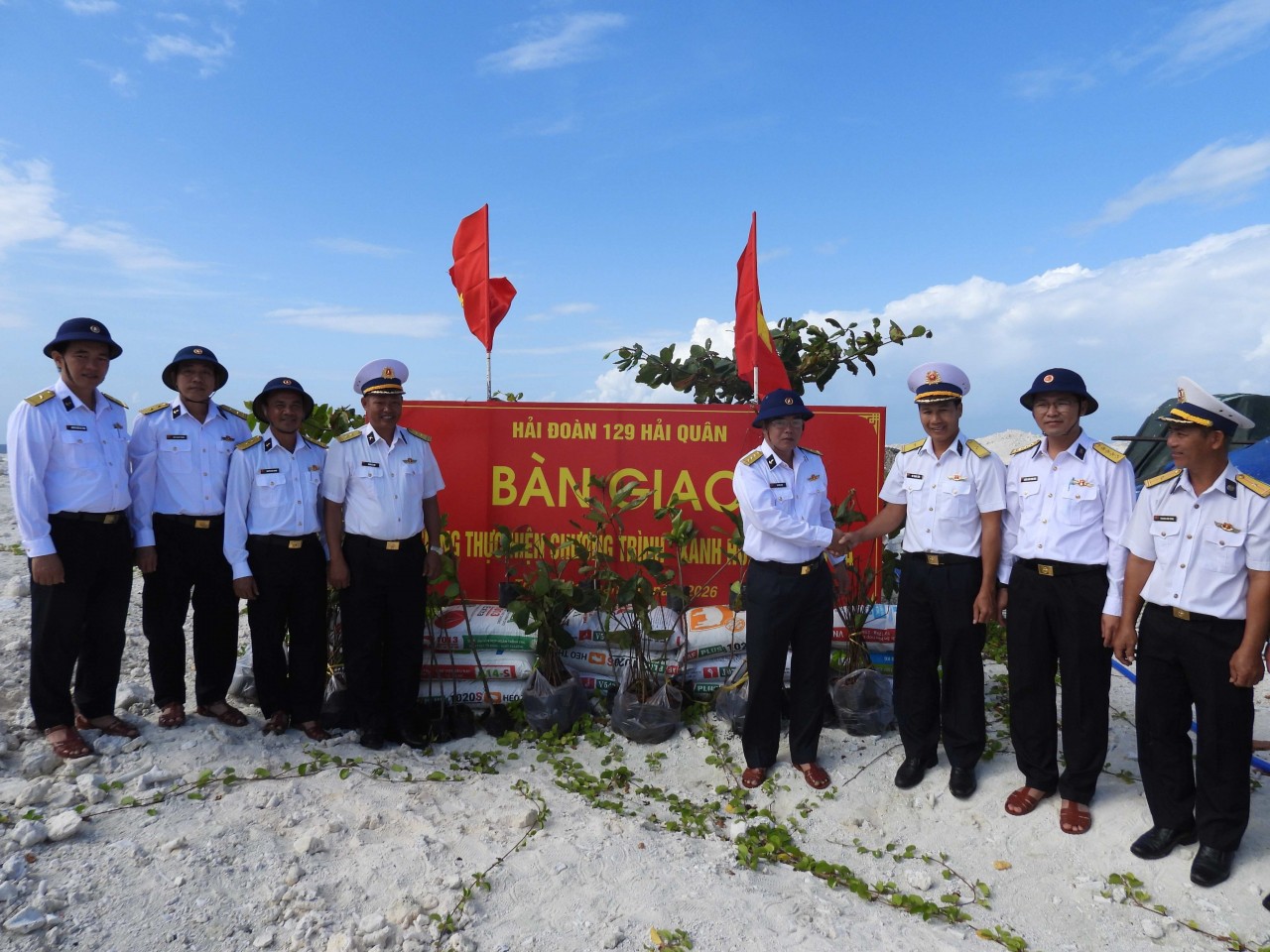 Seas and islands
Seas and islands
Navy Delegation Visits, Encourages and Gives Tet gifts in Truong Sa Special Zone
Popular article
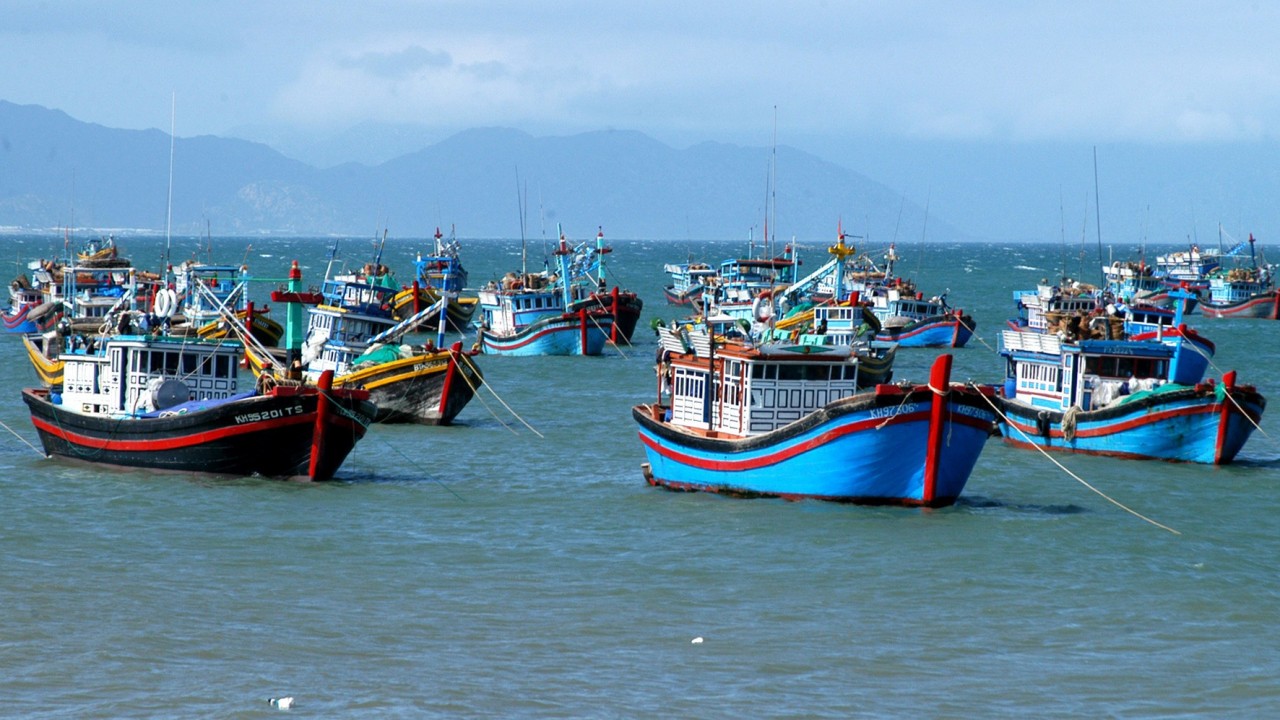 Seas and islands
Seas and islands
Prime Minister Calls for Determined Efforts to Lift IUU “Yellow Card” by April 2026
 Seas and islands
Seas and islands
EU Acknowledges Vietnam’s Efforts to Remove IUU “Yellow Card,” Expects EC On-Site Inspection Soon
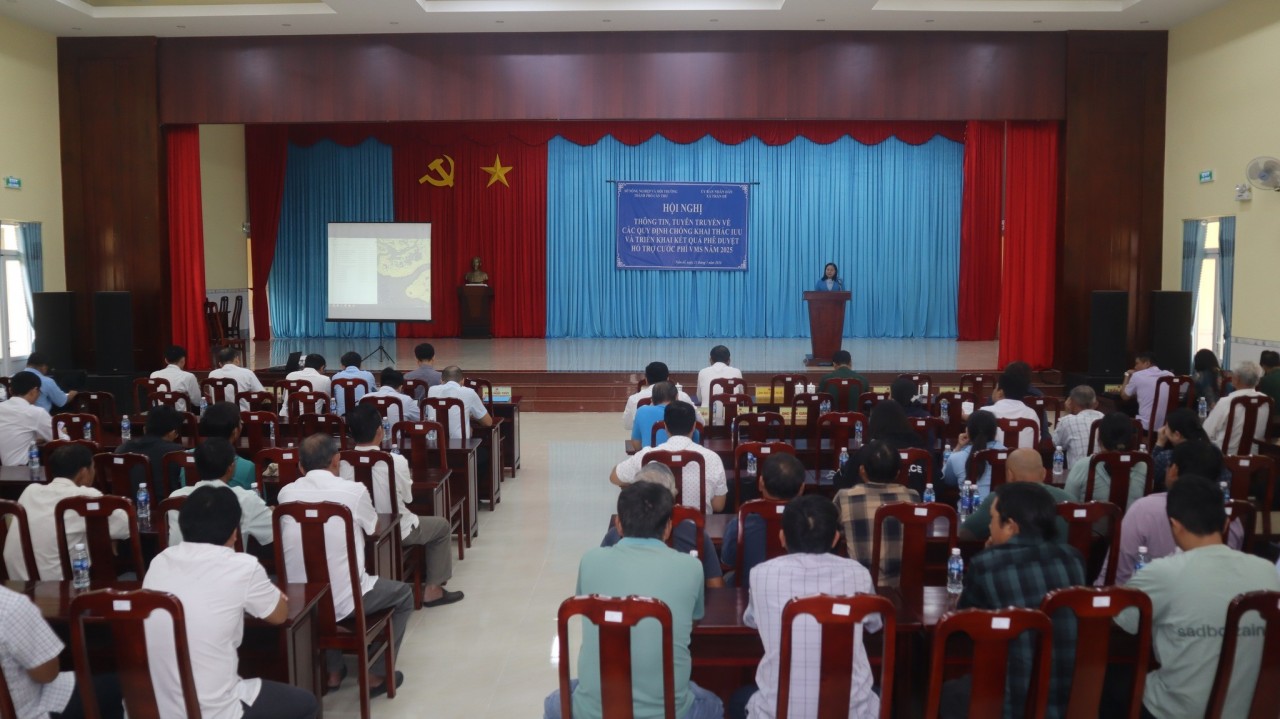 Seas and islands
Seas and islands
Can Tho Supports VMS Fees for 202 Fishing Vessels to Improve Management
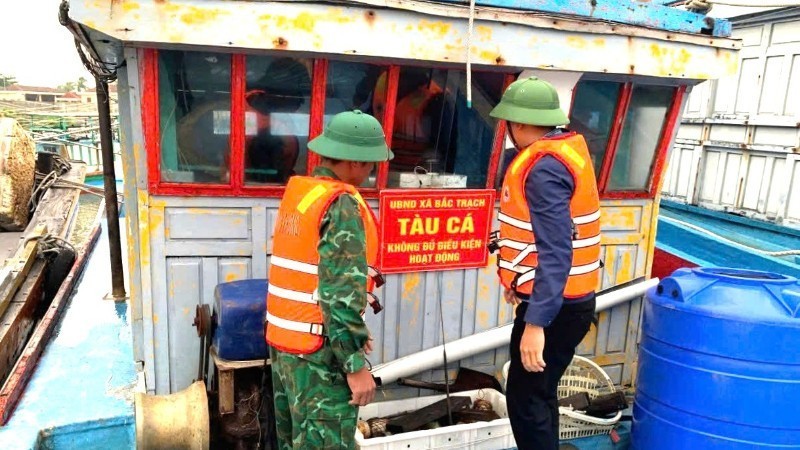 Seas and islands
Seas and islands




